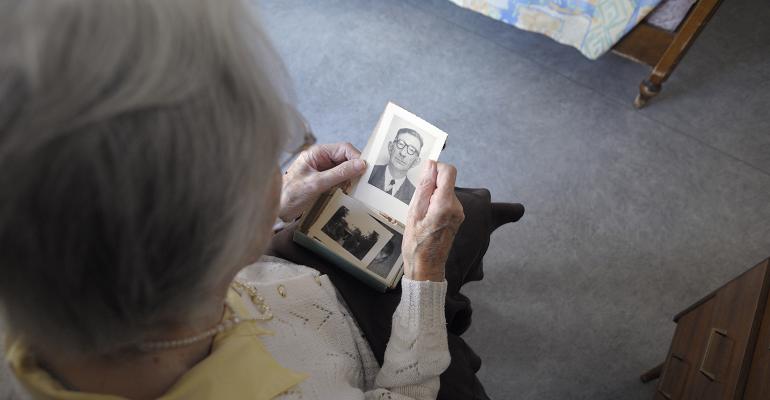We are facing an Alzheimer’s epidemic. We don’t often use that terminology, but how else do you describe a disease that affects 1 in 8 people over 65 years old? Someone is diagnosed with Alzheimer’s disease every 65 seconds in the U.S.—perilously close to one per minute, and well over 9,000 people every week.
Worse yet, we have no cure. We don’t even know what causes the disease. While a hallmark of the disease is proteins that build up and literally kill brain cells (including beta amyloid, which has been considered a causative factor in the past), more than a decade of research on drugs that dissolve or prevent buildup of beta amyloid have come up empty. There have been several major failures just in the past three years. Research is focusing in many other areas – looking at other proteins (tau, TDP), microglia, inflammation, blood factors, infections and more, but there is no definitive direction much less a promise of a cure.
While we wait for a breakthrough, this disease gradually robs people of their cognition, memories, physical abilities and everything that makes them who they are. The amount of stress and pain is incalculable, because each person diagnosed is someone’s mom, sibling, friend, co-worker or spouse. Alzheimer’s does not discriminate by income, achievements, social or financial status, or any other factor. It is an equal-opportunity disease.
Support That Goes Beyond Financial Expertise
In the face of this, advisors have growing numbers of clients who either have family members living with Alzheimer’s disease or who are diagnosed themselves. What are some steps you can take to prepare ahead of time?
- Rather than only giving clients financial analysis in your newsletters, give them tips and information about Alzheimer’s disease so they know you are on top of this issue. You can get information from the Alzheimer’s Association, from the government website of the National Institute on Aging, or from your own research as you keep an eye on the news.
One example: Include a link to the Rush University MIND diet, which lists 10 things to eat and five things to avoid that are proven to reduce the chances of Alzheimer’s. In fact, the University’s latest presentation at a conference on Alzheimer’s disease listed five factors that, working together, dramatically decrease risk even if a person has a genetic predisposition to the disease. These include diet, exercise, challenging your mind, avoiding smoking and restricting alcohol to no more than one daily glass of wine.
- Ensure that your clients and their aging parents have valid and updated living wills listing the treatment they want or don’t want if they are diagnosed with Alzheimer’s or other illnesses. Also ensure they have a Power of Attorney for Healthcare, and that they have talked with the designated person at length about what quality of life they want to have in order to cause them to make a choice for artificial interventions to keep their bodies alive.
- Create a branded page of resources so you are prepared when a client is concerned about a family member. Include the names of the memory care facilities in the area and make sure you meet the directors so you can make a personal introduction with clients. Ask those directors for the names of geriatric care specialists and doctors who specialize in memory care, and put them on your list. Discover where there is adult day care and/or respite care available for those who hope to keep their loved ones at home. Research the availability of meal delivery services, bill payment services, in-home spa services (haircut, massage, manicure/pedicure, etc.), and any other services you find that may help patients stay in their homes longer and provide assistance to their in-home caregivers.
- Consider partnering with the Alzheimer’s Association or another knowledgeable speaker to host a client education seminar on what to watch for, how to prepare ahead of time, and what resources are available if there is a diagnosis.
- Note that research into Alzheimer’s is dramatically underfunded compared to other diseases that affect large portions of the population. If your clients have a philanthropic desire, suggest that they consider Alzheimer’s research. Perhaps your firm would also consider making a donation to the Alzheimer’s Association in memory of any clients who are diagnosed with or die from this cruel disease.
Remember, it is inevitable that at least some and possibly most of your clients will be affected by Alzheimer’s Disease sooner or later. Prepare them now, and let them know you care about their lives and health, not just their money.
Ken Florian is President of Corgenius, combining neuroscience, thanatology and a good dose of humor to teach professionals to build strong relationships with clients through all the losses and transitions of life.

